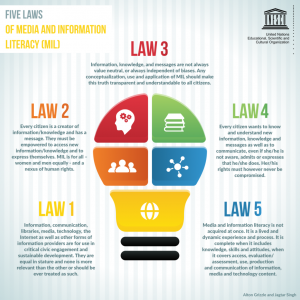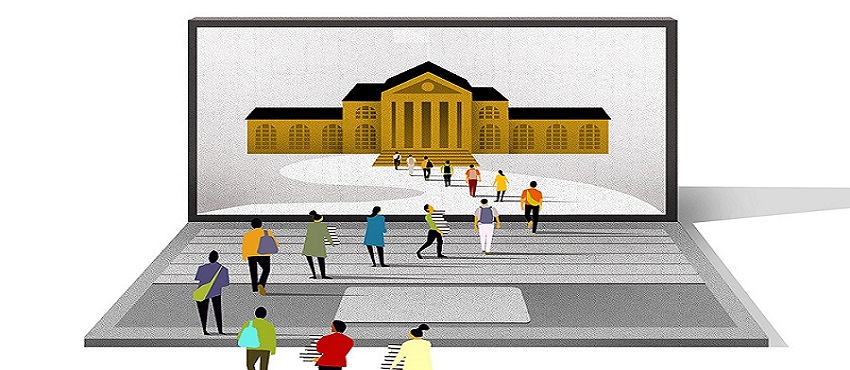The sixth annual Global Media and Information Literacy week gets underway today, running from Wednesday 25th October – Wednesday, 1 November.

UNESCO outlines the benefit of Media and information literacy:
“[MIL] enhances the capacity of people to enjoy their fundamental human rights, in particular as expressed in Article 19 of the Universal Declaration of Human Rights, which states that ‘Everyone has the right to freedom of opinion and expression; this right includes freedom to hold opinions without interference and to seek, receive and impart information and ideas through any media and regardless of frontiers.”
Earlier this week, we highlighted some key activities taking place as part of this year’s Global MIL Week. As it’s launch day, we’re taking the opportunity to signpost to the teaching and self-development resources available in UNESCO’s MIL Digital Toolkit.
MIL MOOC
The UNESCO and Athabasca University Media and Information Literacy and Intercultural Dialogue (MILID) Course was developed in partnership with the International Media and Information Literacy and Intercultural Dialogue University Network. The course is open at any time, and is also available in Arabic. Ten study units address such concepts as media and information literacy, intercultural dialogue, freedom of expression, the multiple roles of media and advertising in contemporary life, gender representation and stereotyping in the media, challenges and opportunities for youth, and ways of engaging with new technologies for social change.
Multimedia MIL Teaching Resources
This multi-language toolkit for educators, researchers and individuals, contains interactive and intercultural Media and Information Literacy teaching resources for use in formal and non-formal educational settings. The resources can be shared, adapted, used and re-uploaded by any user. The toolkit is organised according to the Media and Information Literacy Curriculum Framework for teachers, published by UNESCO (available in nine languages). Resources can also be filtered by language and subject area (e.g. Art, Mathematics, Literature, Communications etc.). The aim is to facilitate intercultural/inter-religious dialogue and mutual understanding through MIL.

